Responding to the Student Voice in Dual Enrollment: Insights From Focus Group Interviews and DESSE Survey Data
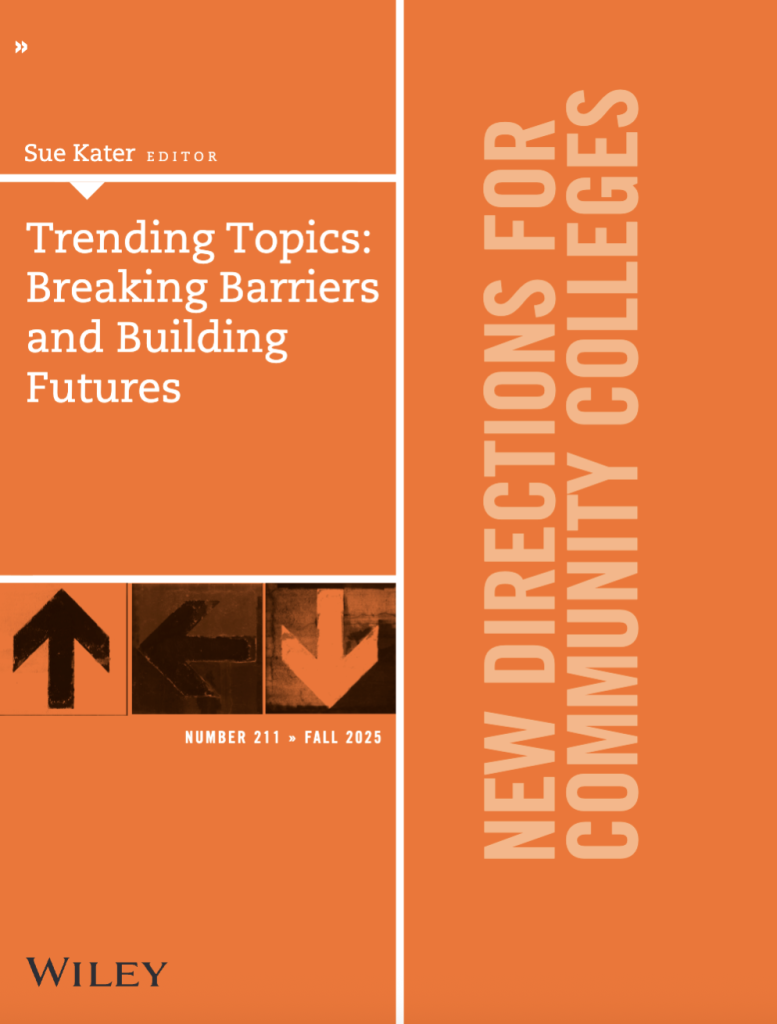
Drawing on survey and interview data, this article describes what students want from their dual enrollment experiences and implications for college and K-12 leaders working to strengthen their dual enrollment programming.
How States and Systems Can Support Practitioner Efforts to Strengthen Dual Enrollment
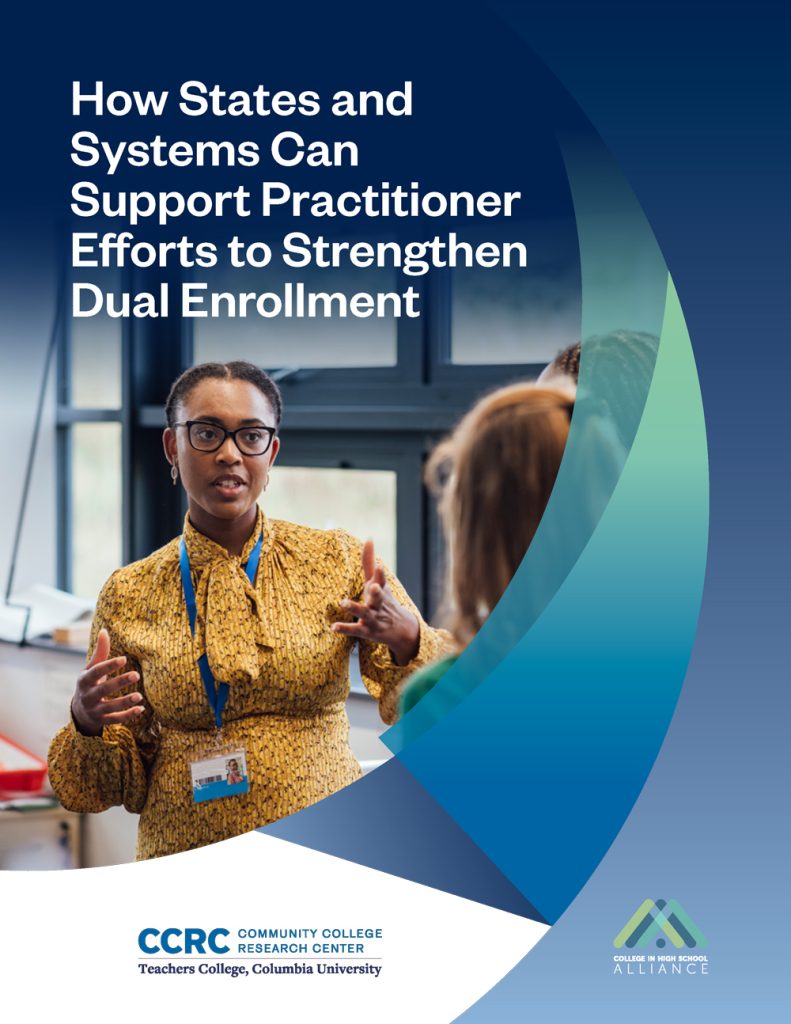
Informed by findings from The Dual Enrollment Playbook and site visits to Title I high schools and their community college partners in Texas and Florida, this report offers guidance for state leaders on how to support practitioner efforts to broaden the benefits of dual enrollment.
DEEP Insights: Redesigning Dual Enrollment as a Purposeful Pathway to College and Career Opportunity
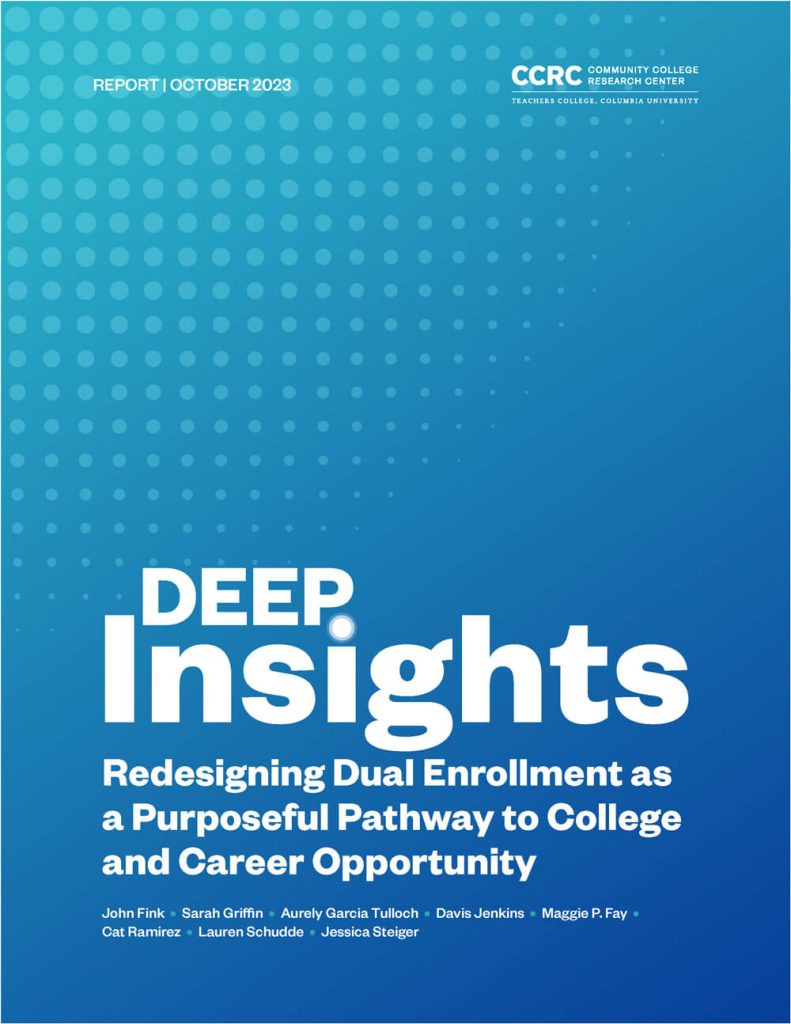
This report describes dual enrollment equity pathways (DEEP) reforms implemented by six community college–K-12 partnerships in Florida and Texas, and it provides insights and guidance for other colleges and schools interested in undertaking DEEP reforms.
How Can Community Colleges Afford to Offer Dual Enrollment College Courses to High School Students at a Discount?
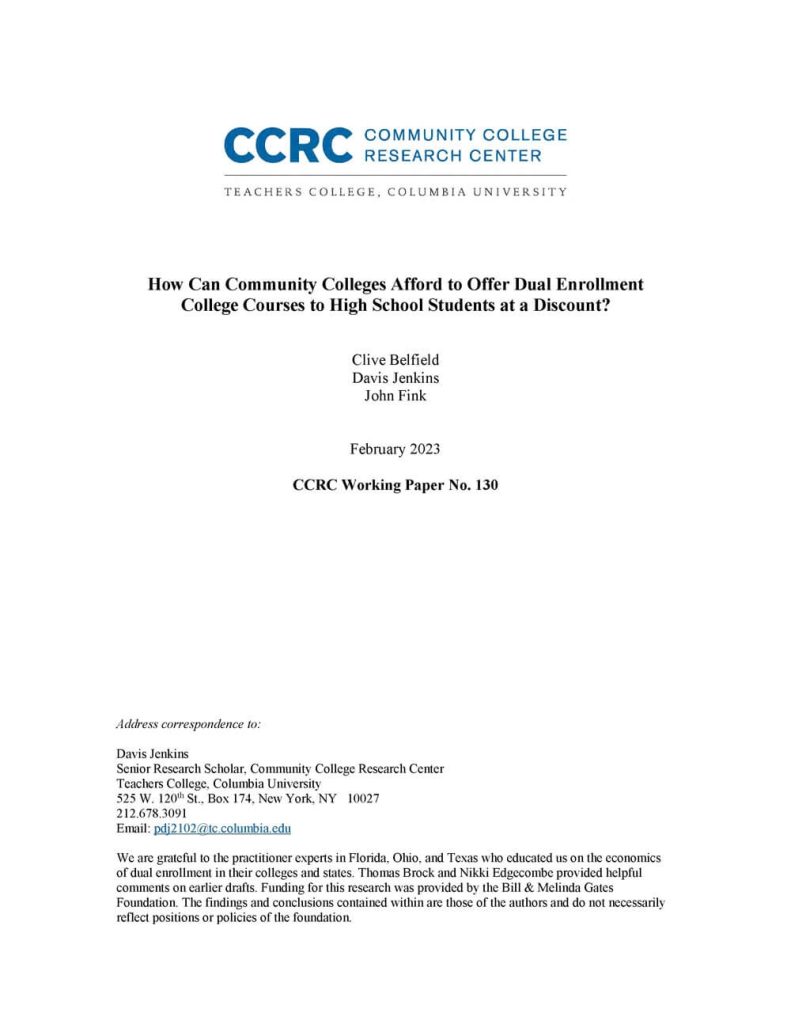
Using three case studies, this paper examines the conditions under which dual enrollment programming could be made sustainable through efficiency gains, even for colleges that charge discounted tuition (or none at all)
Preparing for Tomorrow’s Middle-Skill Jobs: How Community Colleges Are Responding to Technology Innovation in the Workplace
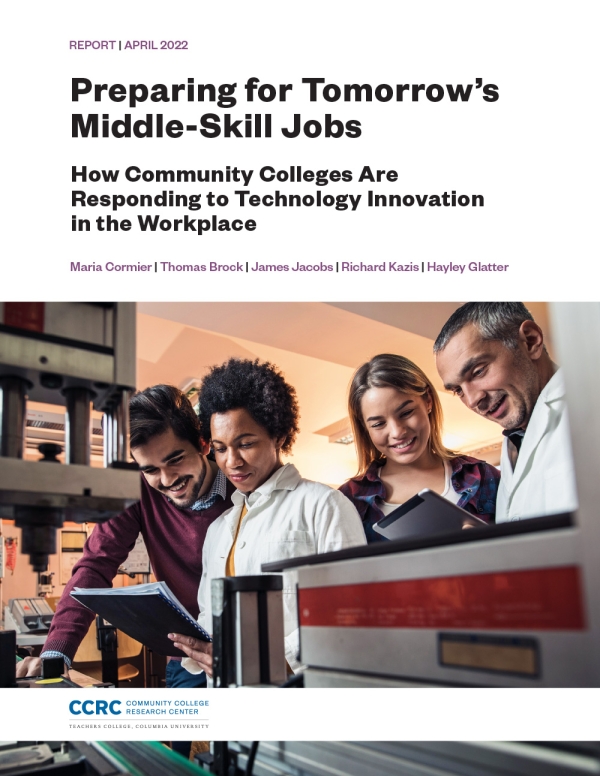
Based on fieldwork at eight institutions, this report describes how community colleges are responding to workplace technology innovation by adapting their workforce programming, diversifying pathways to certificates and degrees, and addressing equity concerns.
